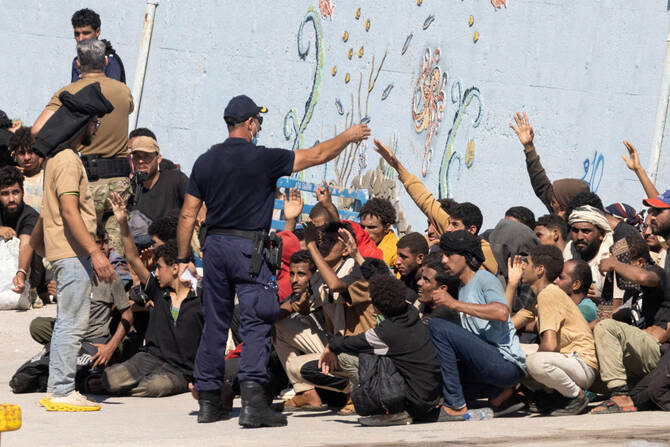
Greece wants to join other European Union countries in exploring the creation of migrant return hubs in Africa to deport rejected asylum seekers, the country’s migration minister said on Wednesday.
Greece was on the frontline of Europe’s migration crisis in 2015-2016, when more than one million people, mainly from the Middle East, reached its shores.
Arrivals have fallen sharply since then, but two Aegean islands closest to the African coast – Crete and Gavdos, the southernmost point of Europe – have recently seen a steep rise in boats coming from North Africa.
Migration Minister Thanos Plevris told Greek public broadcaster ERT that he had raised the issue with Germany and that Athens had formally expressed interest in taking part in EU discussions on setting up so-called “migrant return hubs” in African states.
“There is already a discussion with some safe African countries for the reception of illegal migrants that we (as EU member states) cannot deport,” Plevris said.
German officials were not immediately available for comment.
In September, the Dutch government said the Netherlands and Uganda had agreed to cooperate on returning rejected asylum seekers via Uganda as a transit point, though that arrangement would only apply to people from neighbouring countries.
“If those (migrant return) centres are outside Europe, they would absolutely act as a deterrent (for migrants and refugees) because, imagine sending an Egyptian who embarks for Europe to Uganda instead,” Plevris said.
Uganda has also reached a deal with the United States to receive nationals of third countries who fail to secure asylum in the U.S. but are unwilling to return to their homelands.
Greece has toughened its migration policy under Prime Minister Kyriakos Mitsotakis’ centre-right government, which has extended a fence along the northern land border with Turkey and intensified sea patrols since taking office in 2019.
In an effort to curb arrivals on Crete and Gavdos, Greece stopped processing asylum applications between July and October for people reaching the islands by sea from North Africa, drawing criticism from human rights groups.
